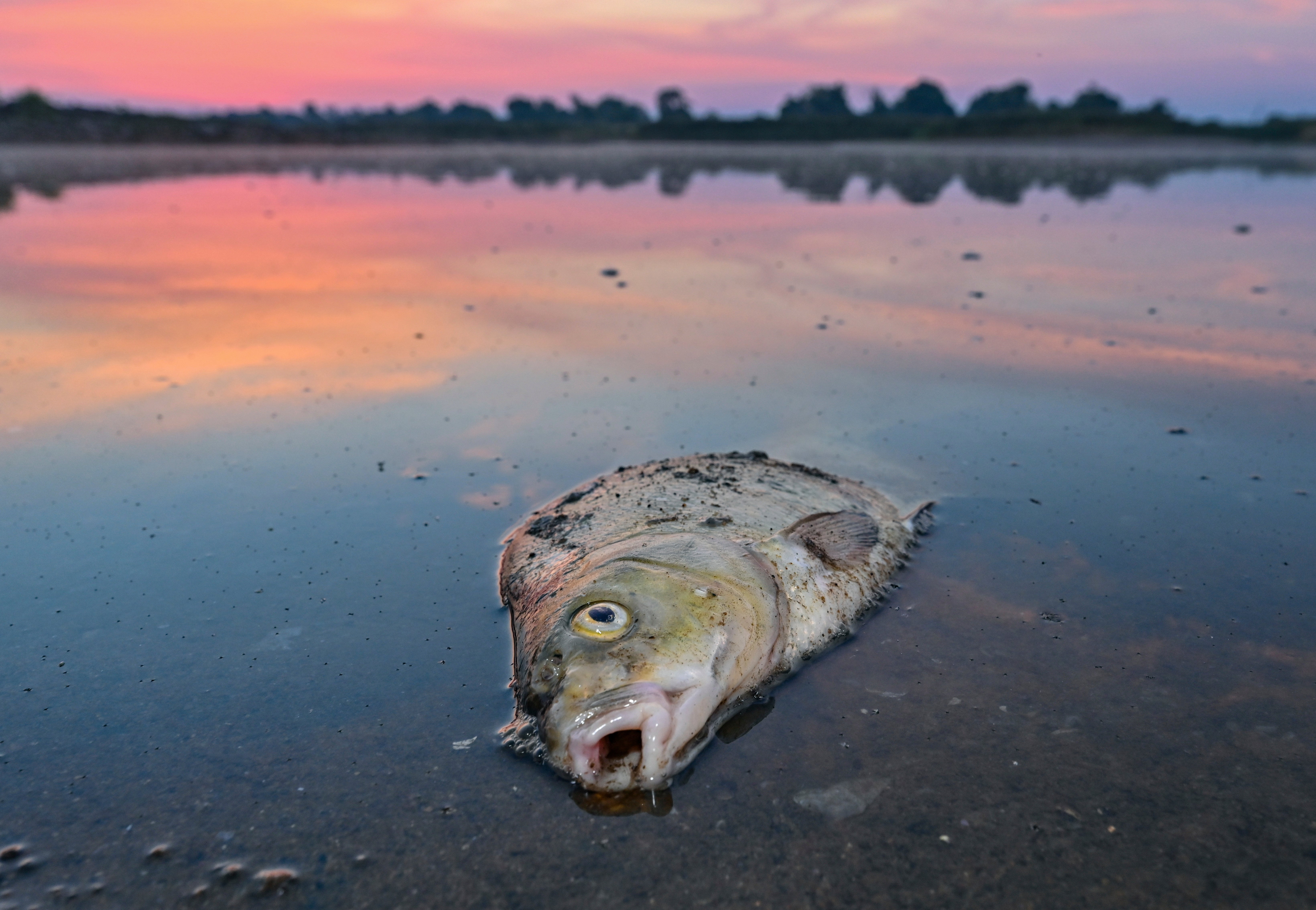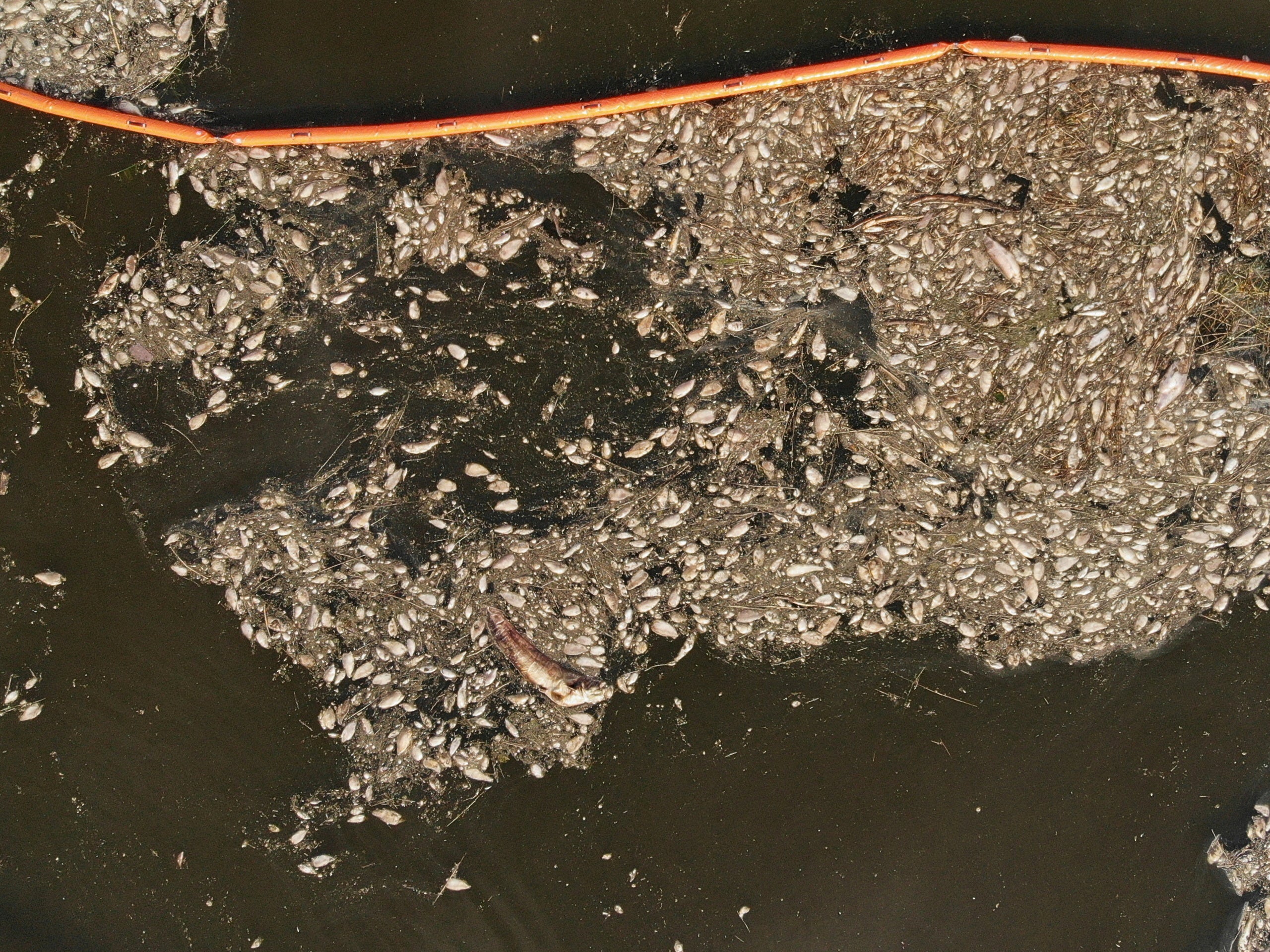Mass fish deaths in Oder River down to ‘cocktail of chemicals’, says Germany
Incident likely to be ‘multi-causal’, according to Berlin

A “cocktail of chemicals” could have caused the deaths of thousands of fish in the Oder River, the German environment ministry has said.
Tens of tonnes of dead fish have been removed from stretches of the river in Germany and Poland, but the cause is still being investigated.
In Berlin’s latest update on the search for a cause, a German government spokesperson said: “So far we have several organic and inorganic substances that could be responsible.
“It seems to be a cocktail of chemicals. According to our information so far, none of these substances alone led to the fish die-off. It must still be assumed that this could be a multi-causal incident.”
The issue was first detected by fishermen in southwest Poland in late July. Germany later complained that it was not alerted by the Polish authorities until mid-August.

Although the countries have agreed to work together to establish the reason behind the large number of unnatural deaths, the disaster has, at times, put a strain on relations.
Over the weekend, Warsaw accused Berlin of spreading “fake news” about the levels of pesticides in the Polish river.
However, the German environment ministry insisted it had done no such thing. “We never said that the Polish side is responsible for the use of pesticides (and) that fish died of this,” it said.
Relations were also tested when Dietmar Woidke, the governor of the German state of Brandenburg, said earlier this month that Poland was only providing information to Germany “in dribs and drabs”.
Experts and officials believe that it could take years for the river’s ecosystems to be restored, especially given the problems brought about by the current drought.
Speaking to the Tagesspiegel newspaper, Karina Dörk, a district administrator of Germany’s Uckermark region, said: “We have to see how the bird population develops and what will happen to the racoons and otters.
“It is a catastrophe that will stay with us for years.”
Join our commenting forum
Join thought-provoking conversations, follow other Independent readers and see their replies
Comments
Bookmark popover
Removed from bookmarks